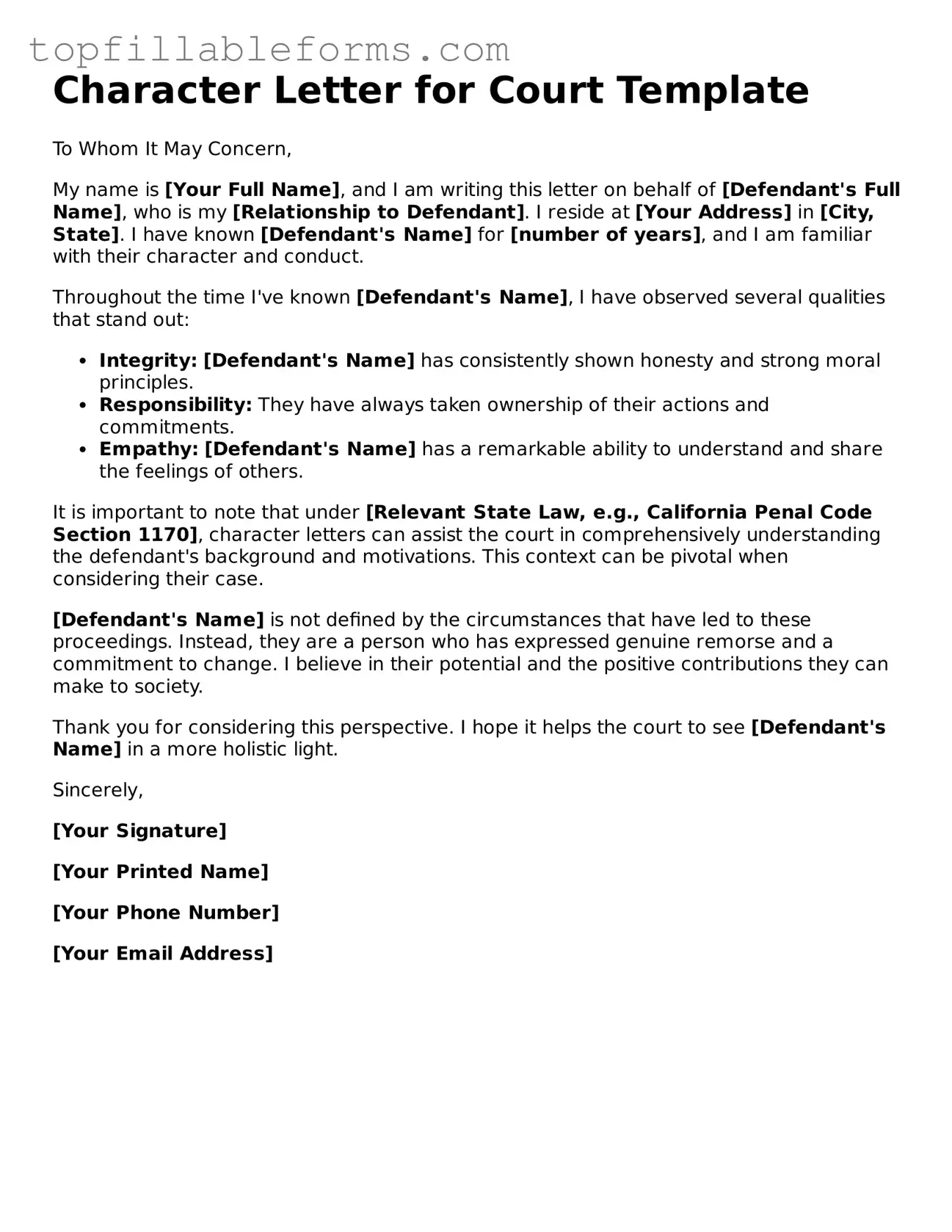Free Character Letter for Court Form
The Character Letter for Court is a personal letter written to provide insight into an individual's character, often submitted during legal proceedings. This letter serves to highlight positive traits and contributions, helping the court understand the person's background beyond the charges they may face. When crafted thoughtfully, it can significantly influence a judge's perception and decision-making.
Open Character Letter for Court Editor Here

Free Character Letter for Court Form
Open Character Letter for Court Editor Here
Finish the form now and be done
Finish your Character Letter for Court online by editing, saving, and downloading fast.
Open Character Letter for Court Editor Here
or
▼ PDF File
